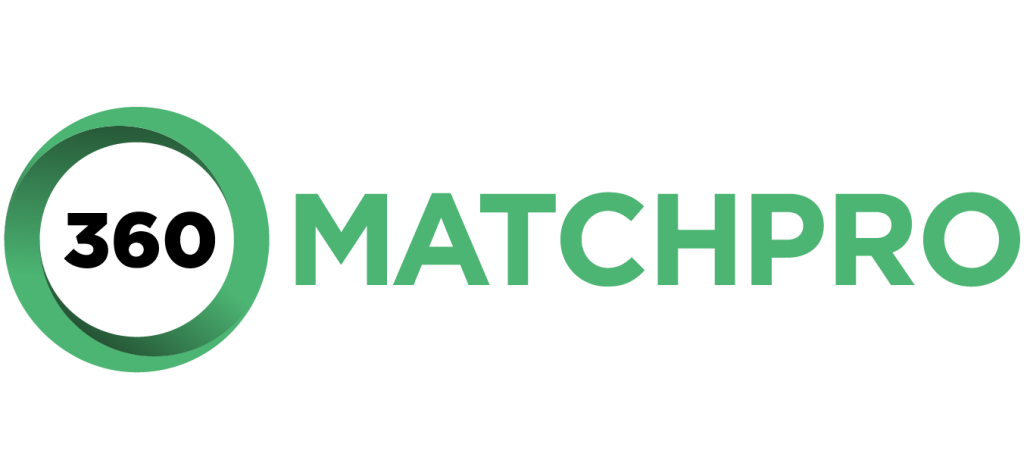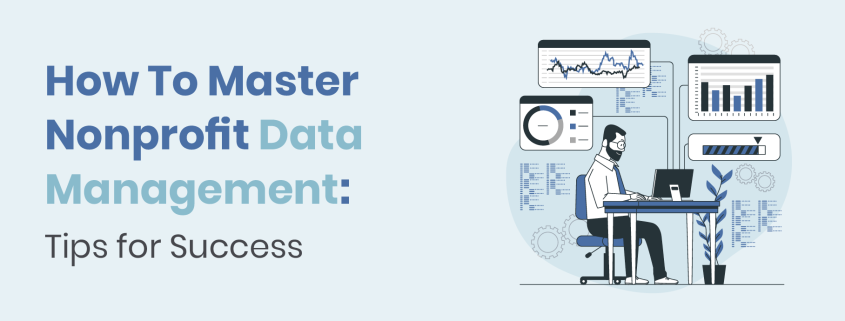How To Master Nonprofit Data Management: Tips for Success
Imagine if your nonprofit could predict donor behavior, measure program impact, and strengthen stakeholder relationships with precision. Effective nonprofit data management makes that dream a reality.
When your team follows clear data management practices, every decision you make is backed by accurate, comprehensive data, allowing you to maximize your resources and achieve your mission.
From implementing efficient data entry procedures to adhering to data ethics, you’ll need a data management strategy. To help, we’ll dive into the fundamentals and explore essential tools and tips to elevate your operations. Here’s what we’ll cover:
- What Is Nonprofit Data Management?
- Why Does Effective Nonprofit Data Management Matter?
- How to Improve Your Nonprofit’s Data Management Approach
- Tools and Services To Power Your Nonprofit Data Management
Ready to transform your raw data into actionable strategies? Let’s dive in!
What Is Nonprofit Data Management?
Nonprofit data management involves the systematic collection, storage, and analysis of data related to a nonprofit’s operations, programs, and stakeholders. The process includes actions like managing donor information, measuring program outcomes, ensuring data security, and leveraging analytics to make informed decisions.
It involves more than simply collecting good data. You need to synthesize that data and use it to improve your nonprofit’s operations, marketing, and stakeholder relationships.
There are two types of data nonprofits manage: qualitative and quantitative.
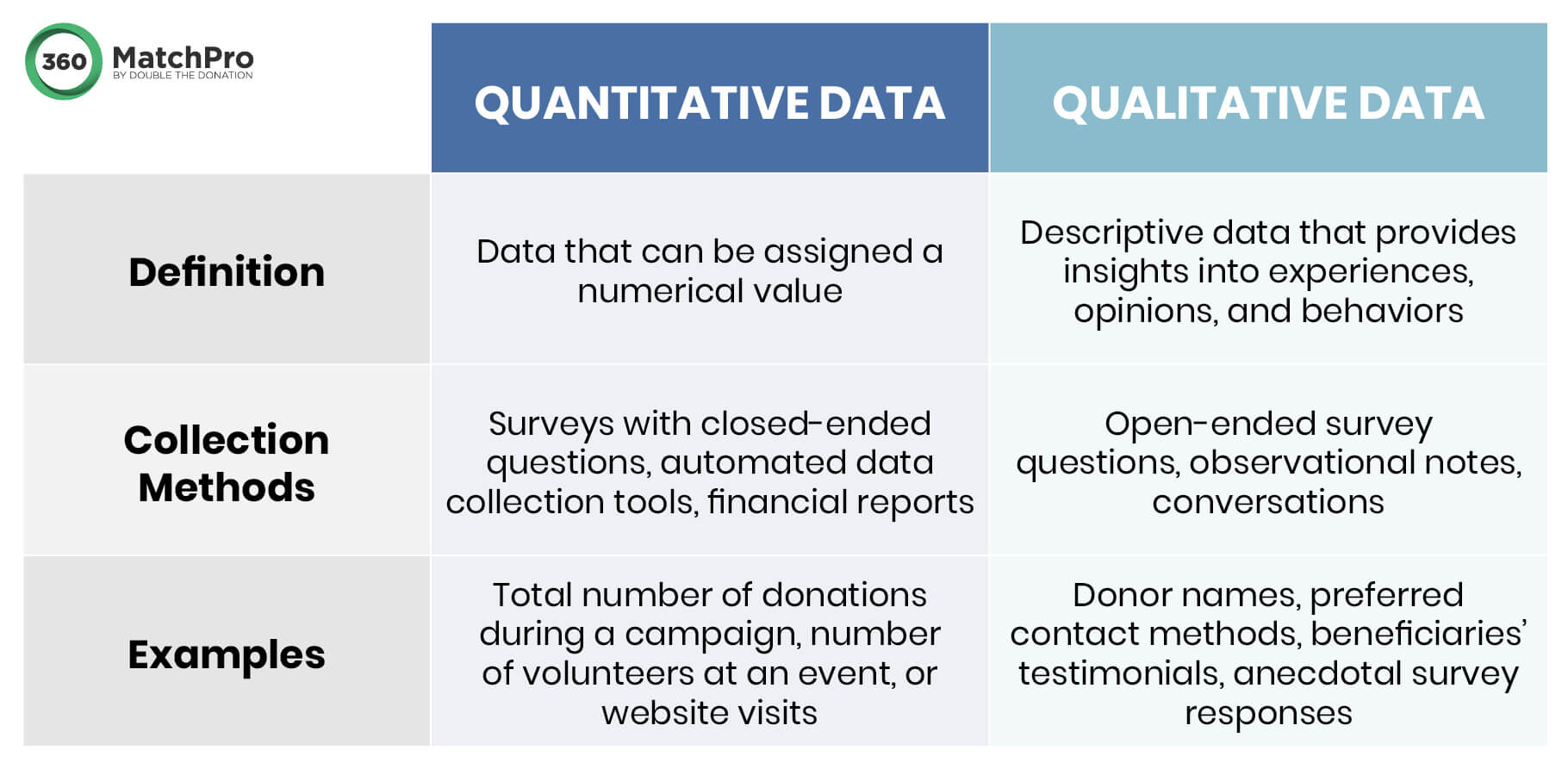
- Quantitative data is fixed data that can be measured and expressed numerically. For example, this might include the total number of donations received during a campaign, the number of volunteers who helped at an event, or the number of visitors to your website.
- Qualitative data is descriptive data that doesn’t have a numerical value. Instead, it provides insights into the experiences and behaviors of stakeholders. Examples include donors’ names preferred contact methods, beneficiaries’ testimonials, and anecdotal survey responses.
Effectively managing both quantitative and qualitative data is essential for your nonprofit to understand its impact, improve stakeholder relationships, and ultimately achieve your mission.
How Do Nonprofits Use Data?
Each nonprofit’s data management strategy depends on its exact goals. Here’s how nonprofits leverage different types of data to achieve specific objectives:
- Program Outcomes: Nonprofits use data to measure the reach and effectiveness of their programs. They track quantitative metrics, such as the number of beneficiaries served and program success rates, and qualitative feedback like testimonials to understand their impact.
- Donor Management: Nonprofits track donation amounts, frequency, and donor retention rates. They also collect donor feedback and stories to enhance engagement and personalize communication strategies.
- Volunteer Management: Nonprofits can improve their volunteer programs by tracking their number of volunteers, hours contributed, and volunteer retention rates, as well as collecting volunteer satisfaction surveys and personal experiences.
- Corporate Giving: Track data on your donors’ corporate matching gift eligibility, prospective business partnerships, and sponsorship outcomes. Use feedback from corporate partners to strengthen these relationships and highlight successful collaborations.
- Fundraising Campaigns: Nonprofits assess their fundraising campaigns by monitoring funds raised and campaign conversion rates.
- Marketing and Outreach: Metrics like website traffic, email open rates, and social media engagement help nonprofits refine their marketing strategies, while audience feedback provides insights into the effectiveness of their outreach.
- Financial Management: Nonprofits use financial data to monitor their budgets, track expenses, and assess grant funding. They also gather stakeholder feedback on financial transparency and insights from board members to ensure sound financial management.
Effective nonprofit data management requires focusing on the data that will enhance your operations. Otherwise, you’ll clutter your systems with unnecessary metrics that hinder your ability to analyze your operations and make an impact.
Why Does Effective Nonprofit Data Management Matter?
By harnessing the power of well-organized and analyzed data, nonprofits can unlock a multitude of benefits to drive their missions’ success and enhance operational performance. Here’s why data quality is important in nonprofit work:
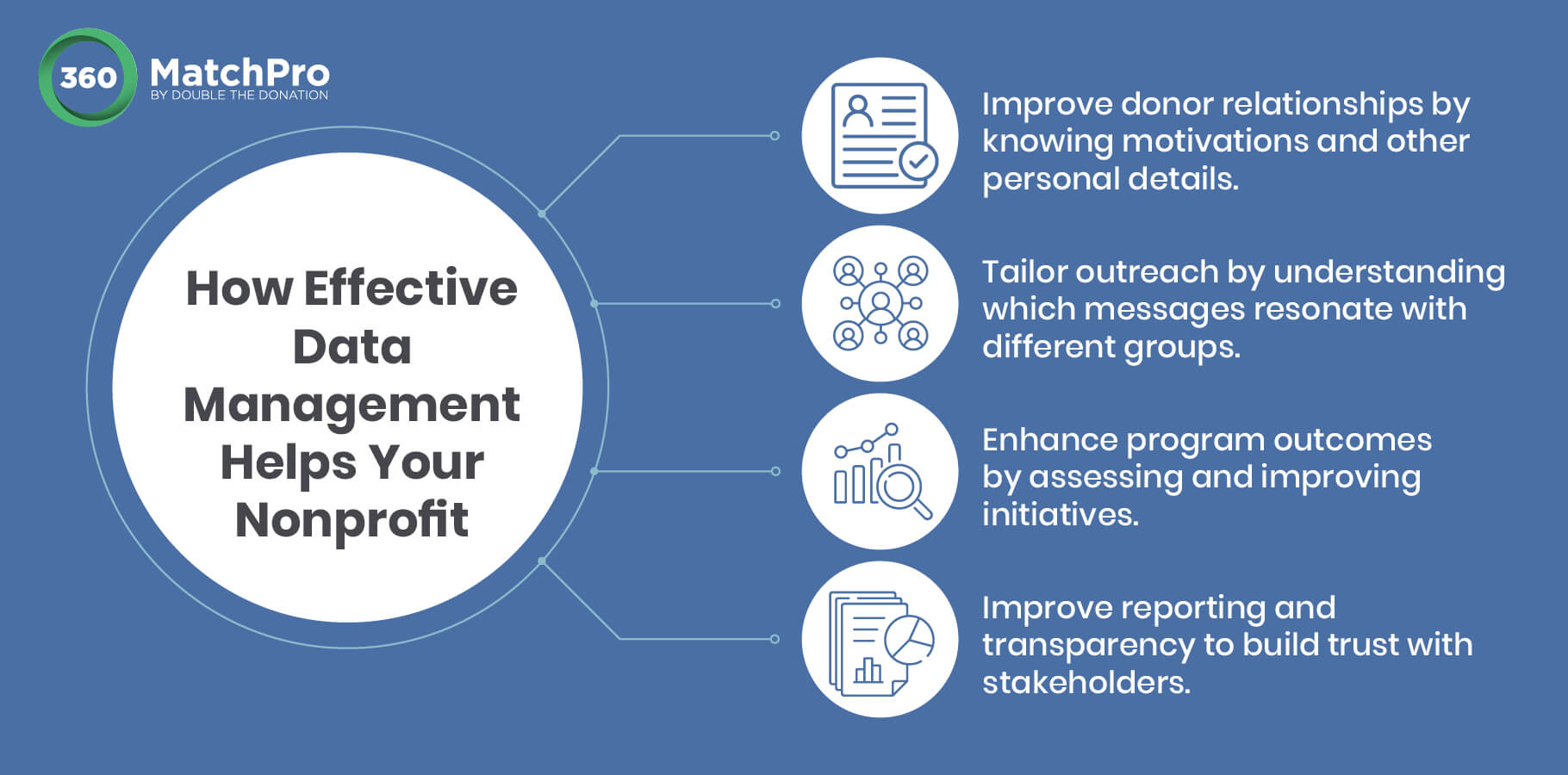
Better Donor Relationships
Effective nonprofit data management provides the insights needed to enhance donor relationships with personalized and targeted engagement. Here are the key benefits:
- Increased Donor Engagement: With donor data, nonprofits can tailor their communication approach to each donor’s preferences and history, such as by requesting donation amounts similar to their past gifts. This personalized approach makes donors feel valued and understood, which in turn strengthens their commitment to the cause and boosts retention.
- Active Supporter Identification: By analyzing donation patterns and engagement metrics, organizations can discover which supporters are committed to their cause and tailor their outreach efforts accordingly. This targeted approach ensures that the most dedicated donors receive the recognition they deserve.
- Matching Gifts and Volunteer Grants: With data management, nonprofits can identify these opportunities and reach out to eligible supporters about them. This increases your nonprofit’s fundraising potential.
- Donor Behavior Predictions: If you leverage predictive analytics tools, you may be able to identify trends and patterns in donor giving behaviors. This foresight enables you to anticipate future donations and identify potential lapses in engagement, allowing for timely interventions.
You rely on your donors to power your work. Make sure your data management strategies support and deepen those relationships to secure this reliable revenue stream.
Tailored Outreach
Your nonprofit’s data lets you know whether you’re reaching the right audiences with the right messages. Here’s how:
- Informed Advertising Targeting: By understanding donor demographics and behavior, your nonprofit can craft ads that resonate more deeply. For example, let’s say you’re creating a Google Ad for your environmental conservation organization. If your data shows that younger donors are highly engaged with wildlife conservation, you can create ads highlighting your wildlife efforts and targeting terms like “wildlife rehabilitation” or “endangered species protection.” Then, using targeting features within your advertising platforms, you can ensure these ads are shown to younger demographics who have previously demonstrated interest in initiatives like yours.
- Insightful Reporting: Data reports reveal which outreach platforms and messages are effective. For example, if social media posts consistently garner higher engagement than direct mail, you might allocate more resources to your social media efforts. This allows your nonprofit to focus on channels that provide the best return on investment.
- Personalized Communication: Simple strategies, such as addressing emails to a donor’s preferred name or referencing the program they last supported, can make outreach feel more personal. Personalization demonstrates that you value their individual contributions and interests, which can increase their loyalty and likelihood of supporting your nonprofit in the future.
Tailored outreach, powered by nonprofit data management, not only enhances engagement but also optimizes resource allocation.
Enhanced Program Outcomes
By tracking and analyzing program data, your nonprofit can better assess its initiatives’ impact and make adjustments to improve outcomes.
Data-driven insights allow you to allocate resources efficiently, directing time, money, and effort toward the most impactful activities. For example, if data shows that a particular educational initiative significantly boosts literacy rates, your organization can choose to expand this program or replicate its strategies elsewhere.
Ultimately, data management empowers nonprofits to deliver maximum benefits to the communities they serve.
Better Reporting and Transparency
Along the same idea of enhancing program outcomes, robust data management helps nonprofits demonstrate their programs’ success to stakeholders, including donors, corporate sponsors, grantmakers, and board members. Clear, quantifiable evidence of impact can enhance transparency, build trust, and secure ongoing support.
Detailed reports help stakeholders understand how their contributions make a difference, increasing their confidence in your organization’s ability to achieve its mission. This level of transparency not only builds trust but also encourages continued and potentially increased support from funders.
How to Improve Your Nonprofit’s Data Management Approach
To experience all these wonderful benefits, start implementing nonprofit data management best practices. Here are some strategies to consider for improving your organization’s approach:
Collect Relevant Donor Data
Only collecting useful data helps your staff identify accurate information quickly when interacting with supporters.
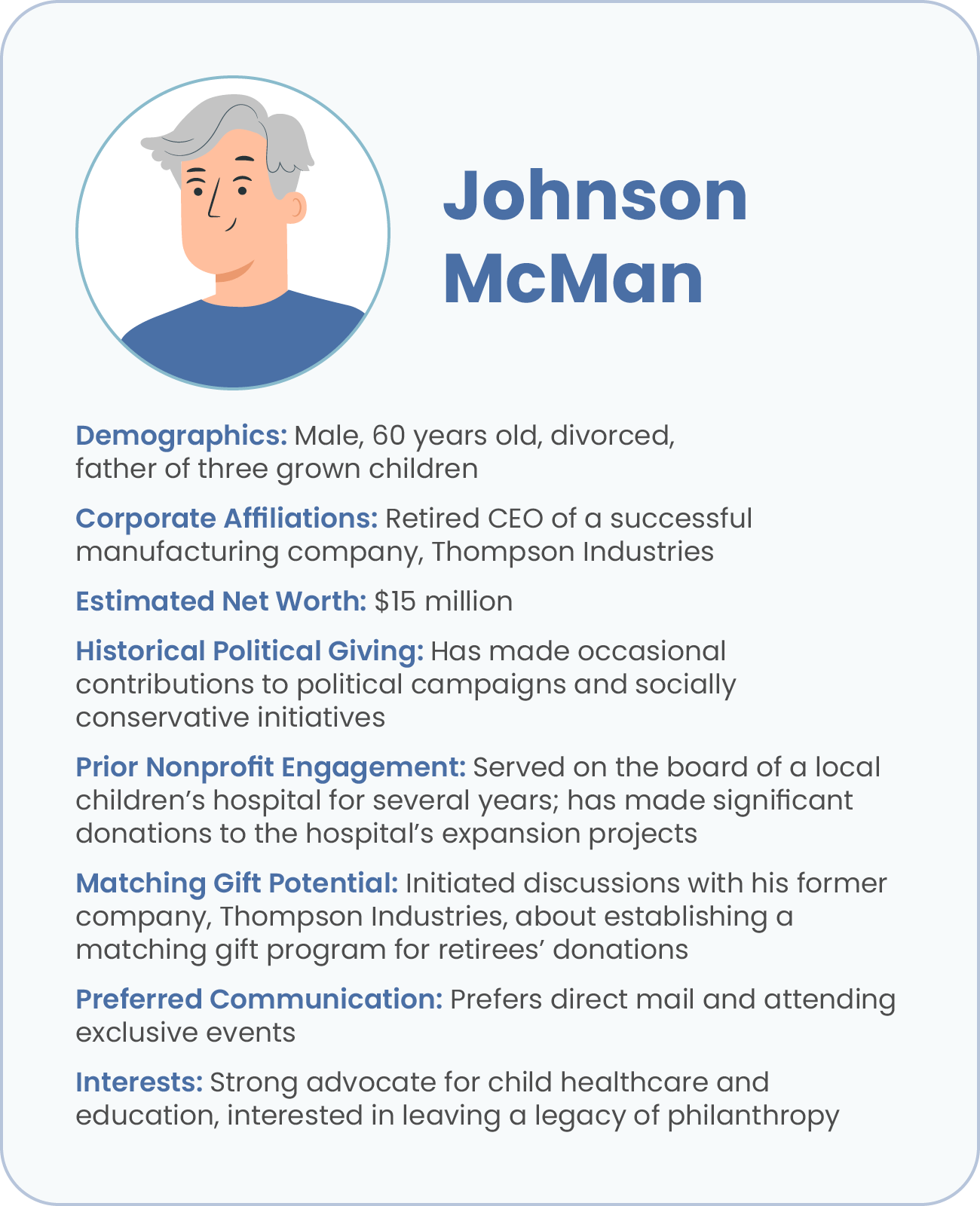
Relevant data to collect:
- Preferred names and titles
- Contact information (e.g., email, phone number, address)
- Donation history
- Employment details and corporate giving eligibility
- Volunteer history
- Communication preferences
- Interests and causes supported
Irrelevant data to avoid:
- Unrelated personal details (e.g., hobbies not connected to your nonprofit’s mission)
- Excessive demographic information (e.g., unrelated family data or former employer names)
- Non-donation-related purchase history
If you’re missing relevant data, consider using appending services. This data management process enhances constituent profiles by adding missing or correcting inaccurate details, such as donors’ phone numbers, email addresses, postal addresses, employer information, and demographic data.
Implement Data Security Practices
Data security practices help protect sensitive donor information, maintain trust, and ensure compliance with legal and regulatory requirements. By safeguarding data, nonprofits can prevent breaches that could damage their reputation and put their donors at risk. Here’s how to ensure data security:
- Limit access to sensitive donor data to authorized personnel only
- Train staff on data security best practices
- Revoke access from past employees immediately upon departure
- Use tools that encrypt data, such as PCI-compliant donation tools
- Regularly update software and systems to protect against vulnerabilities
- Implement strong password policies and multi-factor authentication
- Conduct regular security audits and risk assessments
- Establish a data breach response plan
Ensure that any software or digital services you use implement robust security features and practices, too. Software should encrypt data and operate on secure networks, and service providers use secure methods for transferring and storing data in compliance with all nonprofit regulations regarding data protection and privacy.
Adopt Data Entry Standards
Standardized data entry protocols and policies are crucial for maintaining consistency and quality across your organization. By developing and enforcing these standards, you ensure all data is entered uniformly, reducing errors and improving data accuracy.
For example, standardize formatting for addresses (e.g., using “Lane” or “Ln.” consistently) and salutations (e.g., “Mr.” or “Mr”). Additionally, always check for existing donor records before creating a new profile to avoid duplicates. These practices help create a reliable and efficient data management system that facilitates better decision-making and streamlined operations.
Routinely Clean Your Data
Routinely cleaning your data is essential for maintaining its accuracy and reliability. Regular data cleaning helps eliminate errors, reduce redundancy, and ensure that your database remains up-to-date and useful.
When cleaning your data, look for the following:
- Typos and Inconsistent Formatting: Correct any spelling errors and ensure consistent formatting throughout your database.
- Duplicate Records: Identify and merge duplicate donor profiles to maintain an accurate record of each individual.
- Lapsed/Deceased Donors: Remove records of deceased donors and update lapsed donor information to reflect their current status.
- Incomplete Information: Fill in missing details using data appending services to develop comprehensive records.
- Outdated Contact Information: Update phone numbers, email addresses, and mailing addresses to ensure effective communication.
- Inaccurate Donation Histories: Verify and correct donation records to conduct accurate reporting and analysis.
Data appending services can help immensely with the process of cleaning constituent data. By partnering with a trusted provider, you can enhance your existing constituent records with updated and additional information, improving your data quality.
Regularly Backup Data
Regularly backing up your data safeguards against data loss and ensures you can recover critical information quickly in the event of an emergency. By scheduling frequent backups, you’ll protect your organization from potential threats such as hardware failures, cyberattacks, and accidental deletions.
You might use automated backup systems to update data regularly without manual intervention. Another strategy is to store backup copies in a secure offsite location or use cloud-based services to protect against physical damage to your primary data storage.
Tools and Services To Power Your Nonprofit Data Management
Investing in the right types of data management tools empowers your nonprofit to collect, store, and analyze data accurately. Instead of wasting your hard-earned fundraising dollars on ineffective or unnecessary software, let’s explore the types of tools that will streamline your data collection and management processes.
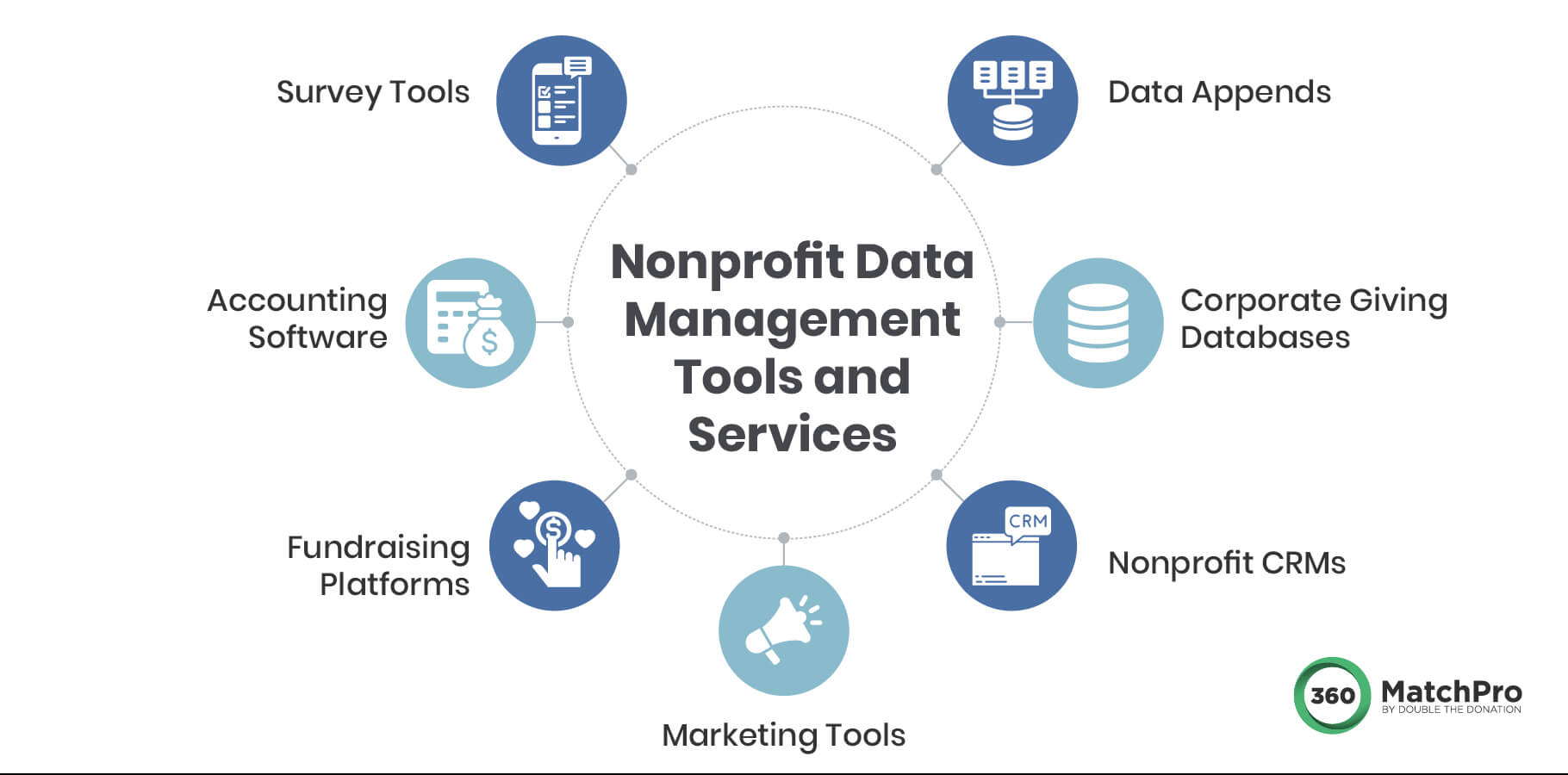
Data Appends
As we’ve highlighted, data appending services enhance your existing database by adding missing information and updating outdated records. Here are some primary services you’ll see offered:

- Address appends to ensure current and accurate mailing addresses for effective direct mail campaigns
- Employer appends to find accurate employment details and pinpoint workplace giving opportunities (Hint! We offer employer appends to help you collect this data and use it to increase matching gift and workplace giving revenue).
- Email appends to improve email deliverability rates
- Phone number appends to facilitate direct and efficient donor outreach and engagement
- Date of birth appends to personalize donor interactions and tailor age-specific engagement strategies
Plus, we follow all nonprofit regulations regarding data protection and privacy, so you can relax knowing your data’s protected.
Corporate Giving Database
Corporate giving tools are specialized software solutions designed to help nonprofits identify and secure matching gift and volunteer grant opportunities. These tools streamline the matching gift and volunteer grant processes by automating the identification of eligible supporters, providing them with necessary forms and instructions, and tracking the progress of their requests. By leveraging a corporate giving database, your nonprofit can significantly increase its fundraising revenue and maximize the impact of individual contributions.
Double the Donation offers the world’s most comprehensive matching gift and volunteer grant database. Our database covers 99.68% of all donors who are matching gift eligible. That’s over 26.8 million individuals! Our system stores details on corporate giving programs for more than 24,000 companies and provides a user-friendly company search tool that your team and donors can use to determine matching gift and volunteer grant eligibility.
Check out this video for a virtual tour of the platform:
A Donor Database or Nonprofit CRM
Donor databases or nonprofit CRMs manage and organize donor information, track interactions, and facilitate relationship-building.
These systems allow organizations to segment donors, enabling personalized communication and targeted fundraising campaigns. They also provide valuable insights through reporting and analytics, helping nonprofits understand donor behavior and identify trends. Additionally, many CRMs integrate with other tools, such as email marketing platforms and donation processing systems, to create a cohesive ecosystem for managing all aspects of donor engagement.
Marketing Tools
Marketing tools assist in creating, executing, and analyzing marketing campaigns to boost visibility and engagement. These tools often feature automation capabilities, allowing nonprofits to schedule and manage campaigns more efficiently.
Analytics and reporting features provide insights into campaign performance, helping organizations refine their strategies. For instance, if analytics data shows that email campaigns have higher conversion rates than social media ads, your nonprofit might allocate more resources to email marketing.
Integrate your donor database and marketing tools to create outreach campaigns that are informed by accurate and up-to-date donor information. Additionally, the data collected through these tools helps nonprofits improve their marketing tactics.
Fundraising Platforms
Fundraising platforms provide comprehensive solutions for online donations, peer-to-peer fundraising, event management, and campaign tracking to help nonprofits raise funds and handle complex multi-channel campaigns. These platforms centralize fundraising data, and many offer features that automate campaigns, enabling nonprofits to manage and analyze donation information seamlessly.
With a platform that offers robust nonprofit data management capabilities, nonprofits can track fundraising performance, identify trends, and make data-driven decisions to optimize their campaigns. Integrating fundraising platforms with donor databases enhances data management for nonprofits, ensuring accurate donor records and effective engagement strategies.
Nonprofit Accounting Software
To manage your finances, invest in accounting software with specialized features for nonprofits like fund accounting, grant management, and financial reporting. These tools help your organization maintain accurate and transparent financial operations.
Effective data management helps nonprofits maintain detailed and organized financial records, which are crucial for compliance and accountability. By providing customizable reports and dashboards, accounting software enables nonprofits to analyze their financial data, identify trends, and make informed decisions.
Survey Tools
Survey tools enable nonprofits to gather feedback and data from stakeholders, including donors, volunteers, beneficiaries, and employees. By managing survey data, your nonprofit can analyze responses to gain insights into stakeholder needs and preferences. This information helps improve programs and services through informed decision-making and program evaluations.
Next Steps for Becoming a Data Management Pro
Nonprofit success isn’t just about passion and hard work; it requires making data-driven decisions that amplify your impact. By leveraging data management best practices and tools, your nonprofit can transform its operations, inspire its supporters, and make a greater impact.
Investing in nonprofit data management is an investment in the future success and sustainability of your organization. Continue learning about data management for nonprofits with these resources:
- How to Collect, Manage, and Use Your Nonprofit’s Donor Data: Discover essential strategies for effectively gathering, organizing, and leveraging donor data to enhance your nonprofit’s fundraising and engagement efforts.
- What Data Should Nonprofits Collect? Overview & Top Tips: Uncover the key types of data your nonprofit should be collecting and the best practices for managing it to strengthen your data management approach.
- Matching Gift Databases: What Nonprofits Should Know: Learn how matching gift databases can boost your fundraising potential by identifying corporate matching opportunities.
